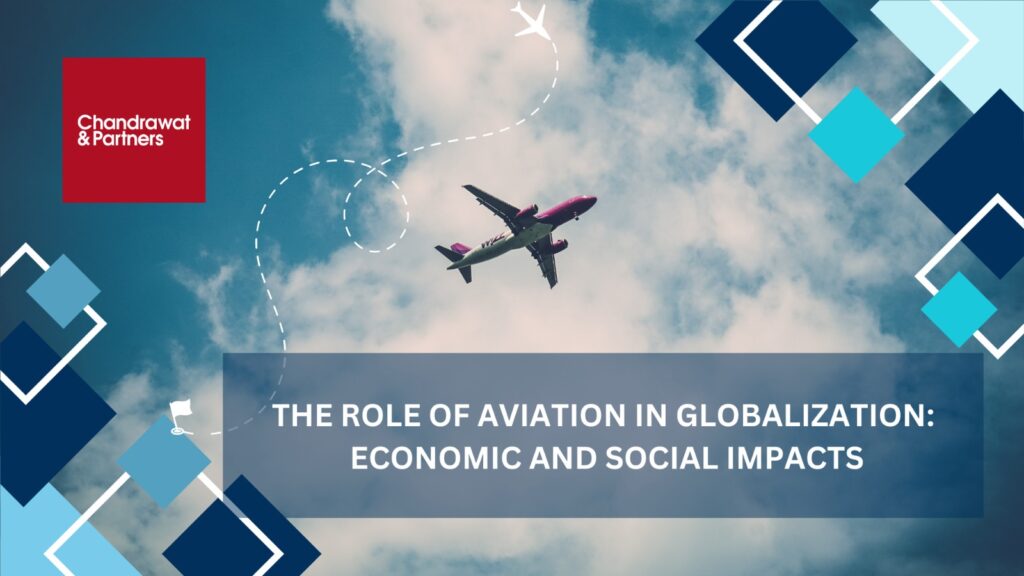Edit Content
Edit Content
Edit Content
Edit Content
Edit Content
Edit Content
Edit Content

In an increasingly interconnected world, aviation has emerged as a critical driver of globalization, shaping the way we do business, travel, and interact with one another. This powerful mode of transportation has not only revolutionized the movement of people and goods but has also had profound economic and social impacts worldwide.
Facilitating Trade and Commerce:
Aviation serves as a global bridge, connecting markets and industries across borders. It has significantly expedited the movement of goods, enabled timely delivery and reduced supply chain bottlenecks. As a result, international trade has grown exponentially, benefiting both developed and developing economies.
Boosting Tourism:
The aviation industry has democratized travel, making it more accessible to people from all walks of life. This accessibility has led to a boom in the tourism sector, contributing to the economies of countless countries. Tourists not only spend money on transportation but also on accommodation, food, and local attractions, stimulating economic growth.
Global Supply Chains:
Modern businesses rely on global supply chains to source materials, manufacture products, and reach consumers. Aviation is integral to this process, allowing for rapid shipment of components and finished goods. This has enhanced the efficiency of manufacturing and improved the competitiveness of many industries.
Foreign Direct Investment (“FDI”):
Aviation hubs often become magnets for foreign investment. Well-connected airports and excellent air links make countries more attractive to multinational corporations, leading to increased FDI. These investments create jobs, stimulate economic growth, and promote technological transfer.
Employment:
The aviation industry itself is a significant employer, providing jobs to millions of people worldwide. From pilots and cabin crew to ground staff, air traffic controllers, and maintenance personnel, aviation fosters employment opportunities across various skill levels.
Real Estate Development:
Airports and aviation infrastructure have a cascading effect on real estate development in their vicinity. Airports stimulate commercial and residential projects, making the surrounding areas more attractive for investment.
Cultural Exchange:
Easy access to international travel has encouraged cultural exchange and understanding. People from diverse backgrounds can experience different cultures, fostering tolerance and appreciation for global diversity.
Education and Knowledge Sharing:
Aviation has made it easier for students to pursue education abroad. This cross-border movement of students enhances global knowledge sharing and academic collaboration, leading to advancements in various fields.
Family and Social Ties:
Aviation allows families and friends to maintain connections across borders. People can visit their loved ones more frequently, strengthening social bonds and emotional well-being.
Medical Tourism:
Access to healthcare services in different parts of the world has become more convenient due to aviation. Patients can seek specialized medical treatment abroad, contributing to their well-being and global healthcare collaboration.
Crisis Response and Humanitarian Aid:
Aviation plays a crucial role in disaster relief and humanitarian efforts. It enables rapid deployment of resources and aid to areas affected by natural disasters, conflicts, or health crises.
Environmental Considerations:
While aviation has undeniably improved global connectivity, it also raises environmental concerns due to carbon emissions. Efforts to develop more sustainable aviation technologies and practices are essential to mitigate these impacts.
The role of aviation in globalization cannot be overstated. It has ushered in an era of unprecedented connectivity, transforming economies and societies across the globe. While the economic benefits are evident, it is essential to balance these advantages with environmental responsibilities. As we continue to rely on aviation for global integration, industry must strive for sustainability and minimize its environmental footprint. The future of aviation in globalization will be shaped by our ability to harness its benefits while addressing its challenges.
Our team plays a crucial role in the aviation industry’s contribution to globalization, particularly in managing legal matters related to economic and social impacts. Here’s how a law firm can assist in this context:
Intellectual Property Protection:
Aviation companies often invest heavily in research and development. Our Team can assist in protecting intellectual property rights, such as patents for innovative aviation technologies. This protection not only supports economic growth but also encourages innovation and technological advancement in industry.
International Expansion and Investment:
Our Team can guide clients through the legal intricacies of cross-border transactions, helping them tap into new markets and contribute to economic globalization.
Compliance with International Agreements:
Aviation plays a significant role in international agreements related to trade, tourism, and sustainable development. Our Team can help clients understand and adhere to these agreements, promoting economic growth and responsible globalization.
For more information or queries, please email us at
enquiries@chandrawatpartners.com

Managing Partner
Chandrawat & Partners is a prominent full-service firm dedicated to delivering top-tier professional services to clients both within the domestic and international spheres.
Copyright © Chandrawat & Partners. All Rights Reserved.
Copyright © Chandrawat & Partners. All Rights Reserved.